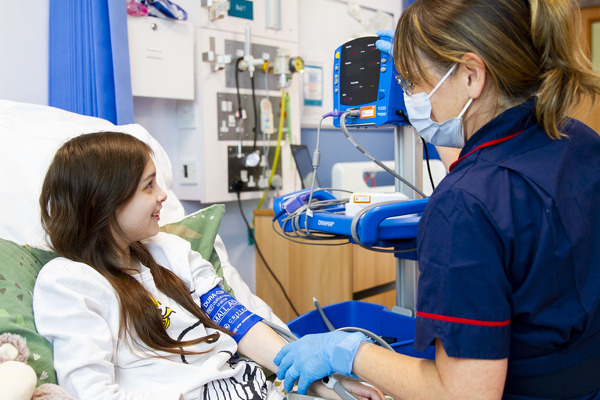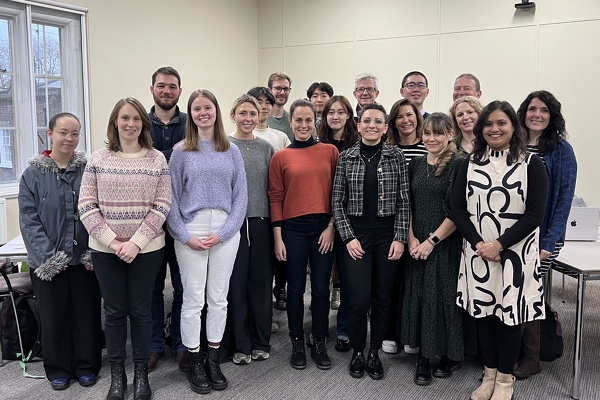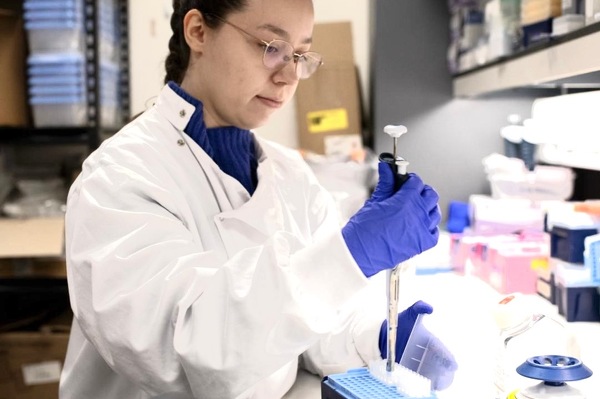
Our team sees around 2500 children a year in specialist clinics, looks after about 400 children with inflammatory bowel disease and carries out about 600 procedures a year on children from premature infants to young people up to 16 years of age.
Our regional Paediatric Gastroenterology, Hepatology and Nutrition service was established in January 2008 to provide care for children with bowel disorders within the East of England region. It is is part of the wider East of England Paediatric Gastroentroenterology Network (EEPGN).

Our team sees around 2500 children a year in specialist clinics, looks after about 400 children with inflammatory bowel disease and carries out about 600 procedures a year on children from premature infants to young people up to 16 years of age.
There are dedicated nurse and dietitian led clinics for children with coeliac disease, joint clinics with paediatric and adult surgeons, and transition clinics to adult IBD, liver and nutrition services. Further specialty clinics include a multi-disciplinary complex feeding clinic that includes a child psychologist, speech therapist and senior dietitian.
In addition we provide liver clinics (with shared care arrangements to King’s College Hospital) and an intestinal failure assessment and treatment service. We also provide a full range of specialised ambulatory investigations that include pH/impedance monitoring and video capsule endoscopy.
We are a diverse, supportive and friendly team of about 30 individuals, including clinicians, scientists, therapists and other professionals working within the unit. We engage with many of the other clinical services and the University Department of Paediatrics. We place a major emphasis on good team work, aiming to ensure a stimulating and enjoyable work environment for all. We believe this is THE foundation and prerequisite for delivering excellent clinical care and performing internationally leading translational research.
Meet our team
Dr Rob Heuschkel is the Clinical Director for the Cambridge Children's Hospital project.
The East of England is the only region in the country without a dedicated children's hospital.
We've been working hard to change this and the Cambridge Children's Hospital project continues to make amazing progress - it has been very long time coming, with efforts starting over 25 years ago. The project has been signed off by the new government which means we can start work in 2026, and the hospital should be open in 2030. The mission of the hospital is to care for children with mental and physical health needs in a safe space designed to provide high quality care for children from across our region. The new building will allow our incredible staff to deliver patient and family-centred care across all specialities. The hospital will also have research space focused on conditions affecting children and young people and a large hospital school.
We want children, young people and families to continue being involved in the research and clinical services in this hospital, the first of its kind in the world. Although it will be several years before we have patients there is still lots to do before the doors open. Clinical teams, co-production champions, our growing childrens regional network, and fundraisers are all working together to make this happen. You can visit the website to see how you can help Cambridge Children's Hospital (cambridgechildrens.org.uk).


This programme provides an outstanding training opportunity at Cambridge University Hospitals (Addenbrookes).
The Department of Paediatric Gastroenterology in Cambridge is currently the largest tertiary referral centre for paediatric gastroenterology in the East of England. Trainees / fellows will join an enthusiastic, multi-disciplinary team, including paediatric gastroenterologists, dietitians, specialist nurses, speech and language therapists, paediatric psychologists, pharmacists and basic scientists. There are usually 1-2 clinical fellows who share the clinical duties and provide critical mass for training and learning opportunities. The team closely collaborates with many departments, these include paediatric surgery, adult surgery and gastroenterology.
Given both the local and regional referral population (20/80% ratio), the training program offers a comprehensive training in both secondary and tertiary clinical care. Trainees will be exposed to all major paediatric gastroenterological conditions including coeliac disease, IBD, functional gut disease and and intolerances, gastro-oesophageal reflux, complex feeding problems (artificial enteral and parenteral nutrition), constipation and short gut syndrome (15-20 patients on HPN).
Significant strengths of the department include a large and expanding clinical IBD service, alongside a strong and integrated translational academic/research program.
The Trust is one of the largest and busiest hospitals in the country and is a leading clinical and academic centre with a national and international reputation for excellence. Just south of this beautiful city, we are now planning a new children’s hospital, integrating physical and mental health and paediatric research. Cambridge Childrens’ is expected to open in 2025. The University of Cambridge and affiliated research institutions provide a world class academic environment (https://www.cam.ac.uk), with our laboratory situated in the heart of one of the largest biomedical campuses in Europe (http://cambridge-biomedical.com).